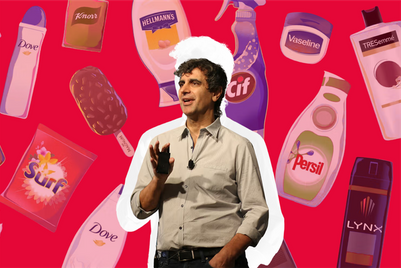Unilever marketing boss Conny Braams has called on advertisers, tech giants, regulators, government and consumers to ensure that the pursuit of Web3 does not come at the expense of trust, transparency and probity.
Speaking at the World Federation of Advertisers' Global Marketer Week event, Braams called for a united front to ensure "people are put first in the next iteration of the web", whereby digitisation is accelerating the convergence of media, entertainment and commerce and blurring "the lines between marketing and sales".
The occasion marked the first time Braams has spoken in public in her new role of chief digital and commercial officer, having previously been chief digital and marketing officer. Effective from 1 April, her tweaked title marks an evolution of her former position and means that sales will be added to her existing remit, with no succession plan in place.
"And no, before you ask, we're not dropping marketing. We're adding sales," she said.
Her WFA speech, entitled "The internet of the people", examined the opportunities of Web3 for marketers to bond more strongly with consumers, while warning of "unintended consequences" and that "the currency in Web3 is not crypto, the currency is trust".
She said: "Web3 cannot be a mistake that the next generation pays for. To put it into context, the founders of the future companies for Web3 are girls in year five today. We have a window to act, to avoid the need to react. Because, in the end, it's people, not technology that will measure the success of our efforts."
Braams told attendees that as advertisers, media companies, agencies, tech giants et al "begin to create and invest in the next environment where people spend their time, and their money, we need to be clear on what we are building and what we need to prevent".
Cutting through the hype is crucial, she added, to "make sure people don't have an experience that is riddled with scams".
"The challenges and concerns of consumers today will only be amplified in an environment where personal data becomes more personal. Regulation alone is not enough. Self-regulation alone is not enough. Self-restraint alone is not enough.
"We need a shift in mindset, from solving problems to preventing problems. We need to act so we don't need to react. Prevent before we need to treat. Foresight instead of hindsight."
Braams stressed that a "true technology evolution must be accompanied by the development of substantial, new, ethical infrastructures and policies... because the internet without trust, is scandal".
(This story first appeared on Campaign Asia)
.png&h=570&w=855&q=100&v=20250320&c=1)
.png&h=570&w=855&q=100&v=20250320&c=1)


.jpg&h=334&w=500&q=100&v=20250320&c=1)
.jpg&h=334&w=500&q=100&v=20250320&c=1)



.jpg&h=334&w=500&q=100&v=20250320&c=1)



.jpg&h=334&w=500&q=100&v=20250320&c=1)
.jpg&h=268&w=401&q=100&v=20250320&c=1)







